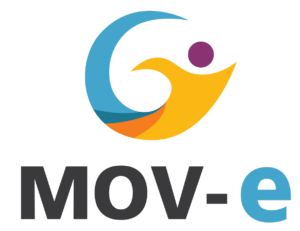Comments on the ergonomics of the physiotherapist’s work and suggestions on cooperation with other members of the therapeutic team and people from the patient’s close environment (family, friends)
When carrying out your tasks and conducting subsequent physical fitness tests, you should always remember the basic principles of work ergonomics. Remember to adopt the correct positions, not unnecessarily burdening the skeletal and muscular system. Do not help or relieve a person with an intellectual disability if it is not necessary – such action will allow them to show the maximum of their abilities and minimize the risk of excessive burdens on you.
You need to consider the components of your health that may affect your client’s ability to exercise. It is often necessary to work closely with, for example, a cardiologist or dietician.
In order to achieve success, the involvement of caregivers and loved ones is also crucial.
Your task may be:
- Making the client and caregiver aware of the impact of physical activity on health, independence, performing everyday activities
- Increasing the client’s self-confidence, faith in their own abilities, as well as faith in their capabilities in the caregiver
- Reducing anxiety, stress or reluctance to be physically active
- Reducing the fear of the parent, caregiver for the safety of the mentee
- Arousing intrinsic or extrinsic motivation to exercise
- Assistance in overcoming internal and external barriers hindering physical activity
You may want to consider the following interventions:
- Conversation
- Emphasizing the role of ordinary, everyday activities (walking, resigning from the elevator)
- Exercise show, watching sports activities together in which people with similar dysfunctions participate
- Setting short-term goals – easy to achieve and more difficult, requiring more time and effort
- Frequent feedback, highlighting strengths, even small progress, constant motivation
- Help in finding a pleasant and interesting activity / sport discipline
Assistance in organizing a group for classes (integration activities, peers, classes with family, carers)


Leave a Reply
Want to join the discussion?Feel free to contribute!